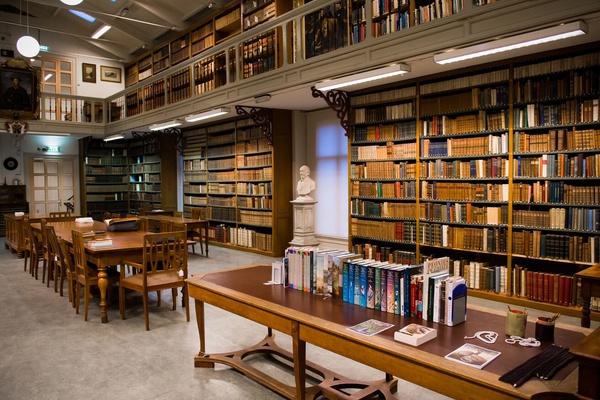-
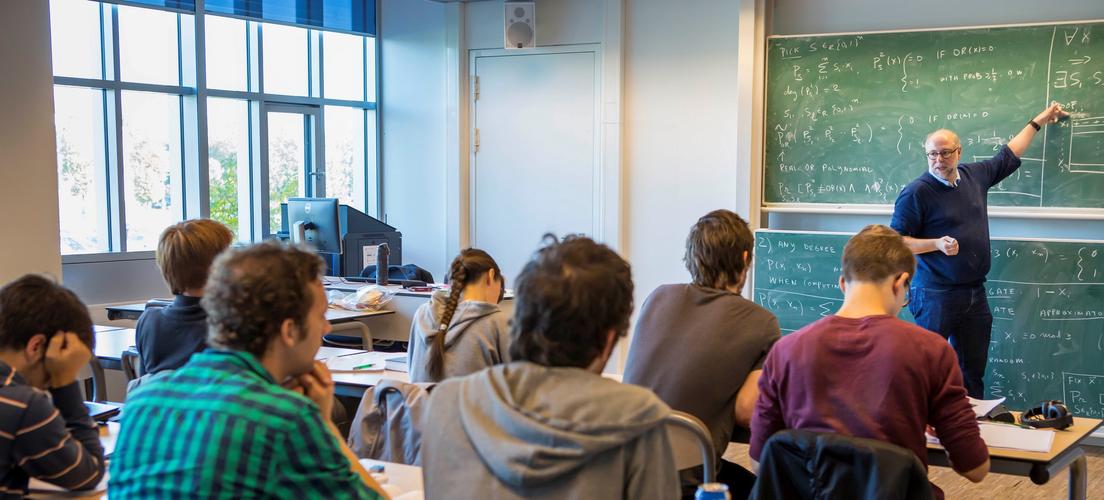
Theoretical Computer Science
In theoretical computer science, our research is characterised by a focus on fundamental questions regarding the design and analysis of algorithms. We investigate problems motivated by applications in physics, economics, and AI.
-

Language and Music Cognition
The Language and Music Cognition unit uses computational models and artificial intelligence to study questions of semantics and meaning, both linguistic and musical, and tests the behavioural implications of these models for speakers, signers, musicians, readers, and listeners.
-

Epistemology and Philosophy of Science
Researchers in this unit focus on the use of computational models and analytic methods coming from logic, probability theory and game theory to address a number of topics in formal epistemology and in the methodology and philosophy of science broadly conceived.
-
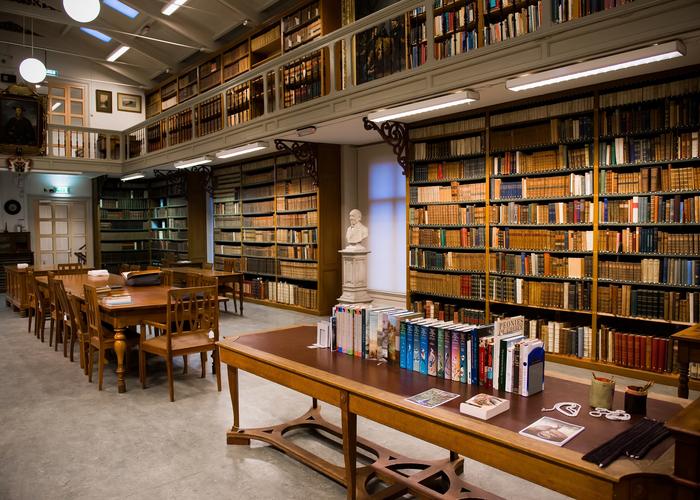
Formal Semantics and Philosophical Logic
The research focus of this unit is the study, through the application of formal tools, of information transfer and communication through meaningful language use, as well as of key philosophical problems. The unit brings together researchers who are a leading force within formal semantics and pragmatics and within philosophical logic.
-
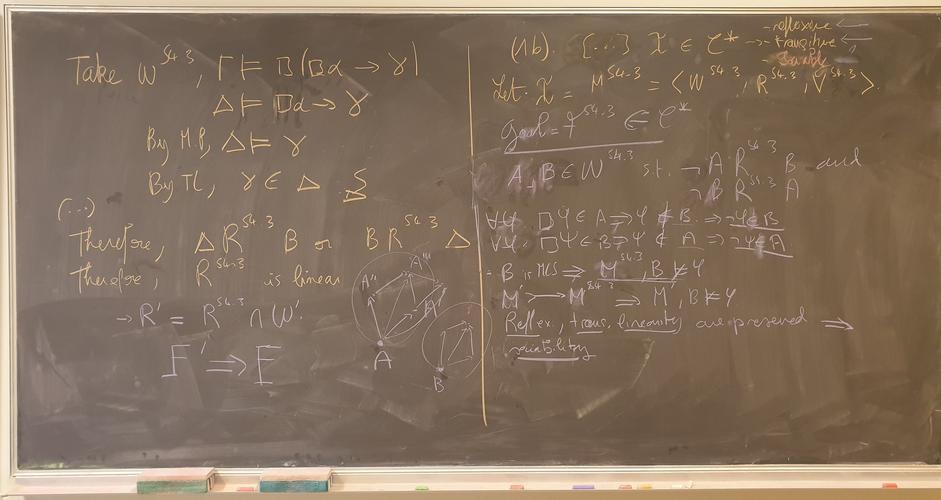
Mathematical and Computational Logic
The unit focuses on gaining a deeper understanding of the nature of information and the processes of reasoning and computation. While being best known for our work in intuitionistic and modal logic, we cover most of the classical areas of mathematical logic such as set theory, computability theory, category theory, proof theory and algebraic logic.
-

Natural Language Processing and Digital Humanities
Research in the Natural Language Processing and Digital Humanities unit focuses on automated analysis, interpretation and generation of human language and their extension towards language technology. Our work encompasses a range of topics within natural language processing (NLP), such as syntactic parsing, computational semantics and pragmatics, discourse processing, dialogue modelling, machine translation and multilingual NLP.
-
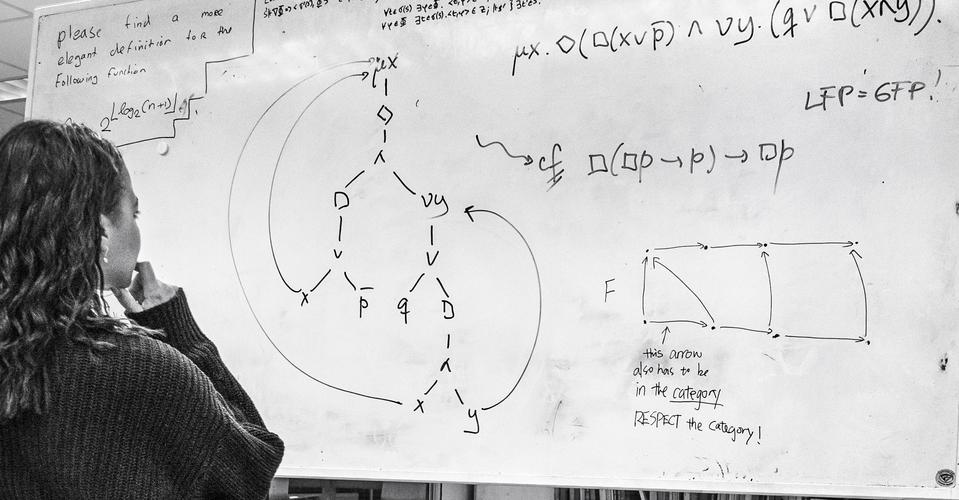
Master of Logic
The MSc in Logic is an international and interdisciplinary Master's degree offered by the University of Amsterdam. It is organized as part of the Graduate Programme in Logic (GPiL) by the Institute for Logic, Language and Computation (ILLC). The Graduate Programme offers courses and research training in foundations of mathematical and philosophical logic, and their applications in computer science, linguistics, and cognitive science.
-
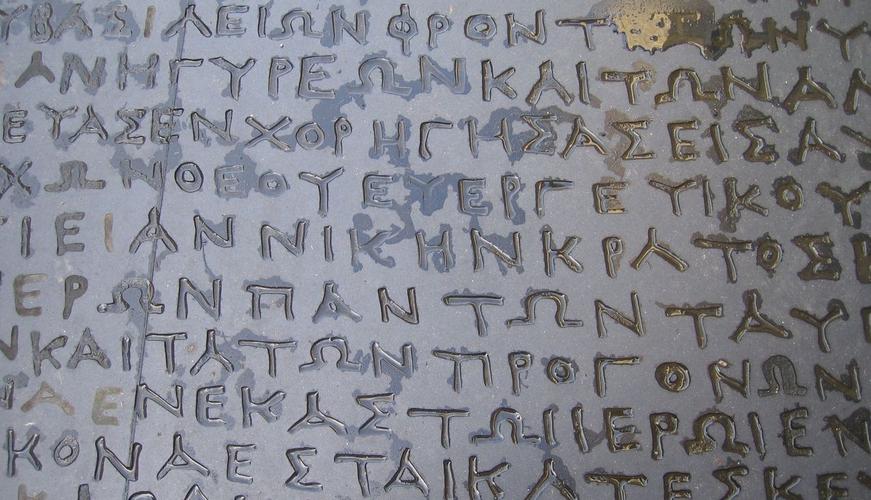
PhD Programme
The ILLC PhD programme, organised by the Institute for Logic, Language and Computation (ILLC) at the University of Amsterdam, is a four-year programme designed to support and guide PhD candidates in their track to become highly qualified scientific researchers in the areas described by the institute's research mission. PhD candidates are given the opportunity to benefit from a rich scientific programme as well as a tailor-made transferable-skills programme.

News

Dr. Maria Aloni
'People often draw conclusions that go beyond what is literally said and reason contrary to the prescriptions of classical logic. But even such cases of divergence between everyday and logical-mathematical reasoning can be studied by logical means in a precise and rigorous way.'

